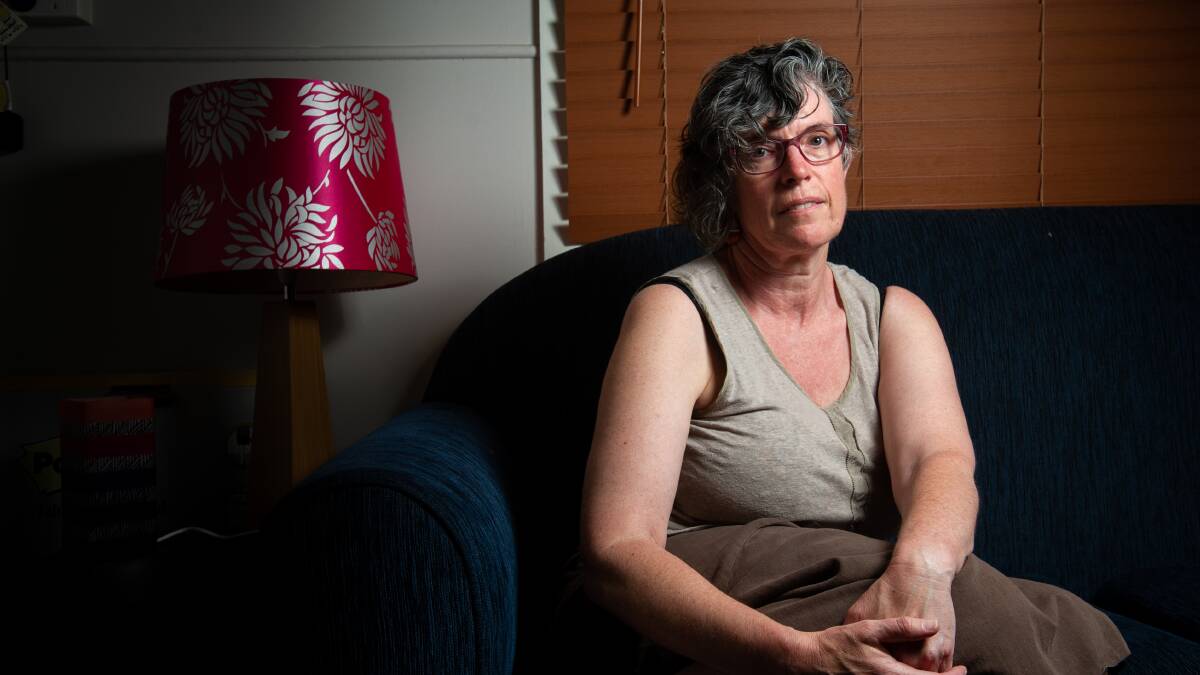
Women who have avoided sleeping on the streets through house-sitting and housekeeping arrangements were also hit hard by COVID-19 lockdowns and restrictions, providers say.
Megan Watts knows the stress of transient living, having spent two months constantly shifting between the houses of friends and relatives, at times driving with no idea where she was headed.
"I ended up homeless and couch-surfing when my marriage of 29 years broke down in 2019, so the family home had to be sold as part of the divorce settlement," she said.
"I ended up sleeping on a mattress on the floor at my daughter's house for two weeks."
Ms Watts was eventually able to find a private rental, a bedsit owned by friends, but she didn't have a lease: "So that was still slightly preying on me about the fact that I don't have any legal standing in the space."
While women aged 55 and over were the fastest growing group affected by homelessness, some of them were hidden from help, relying on resourcefulness to "manage their homelessness", YWCA chief executive Frances Crimmins said.
"That is through that informal house-sitting arrangement, moving from different friends', relatives' homes every few weeks and, sadly, some have even said partnering ... out of necessity if they need to to have housing and ... we do know that there are some in their cars," she said.
The affluence of Canberrans in general has meant professional house-sitting opportunities were available, until the pandemic encroached on that.
"We do have clients who literally were going from one house-sit to another," Ms Crimmins said.
"So when everybody needed their houses back, because we weren't travelling, that did leave some of this group that we're supporting with actually nowhere to live."
Women who were staying with family or friends were also confronted with decisions about whether to compromise their health in order to stay off the streets, she said.
"Not necessarily wanting to be in an overcrowded house, concern of your vulnerability, for your own health," Ms Crimmins said of some of the inherent flaws associated with the insecure situations many women found themselves in.
"So some also then felt that they couldn't even go and stay with family members that they may have ordinarily done."
Women in such situations were often barred from accessing help by the stigma of homelessness, Ms Crimmins said.
"A lot of these women don't want to identify as homeless and it is a big step for them to ask for help," she said
"A lot of the referrals come to us from other people - family, parents, sometimes grandchildren - referring their grandmothers."
A YWCA survey published in December received 524 responses from women aged 45 and over, about 2 per cent of whom were in an insecure housing situation in the ACT, including living with relatives, housekeeping or sitting in exchange for accommodation.
Ms Watts said there needed to be more data on the number of people in these situations.
"We know that women over 50 are the fastest growing age range in the homelessness experience, but we don't know enough about the what is happening in that space," she said.
"Without data we ... don't know what the problem is. Until we know what the problem is we cant address it."
Ms Watts said beyond stigma, people experiencing homelessness in this form could be systemically barred from help.
"I couldn't get into a homeless shelter because my income was too high," she said.
"I was working three or four days a week and on paper was asset-rich and on paper had a good income ... [but] I was surviving on $375 a fortnight once I had paid my share of the joint bills."







